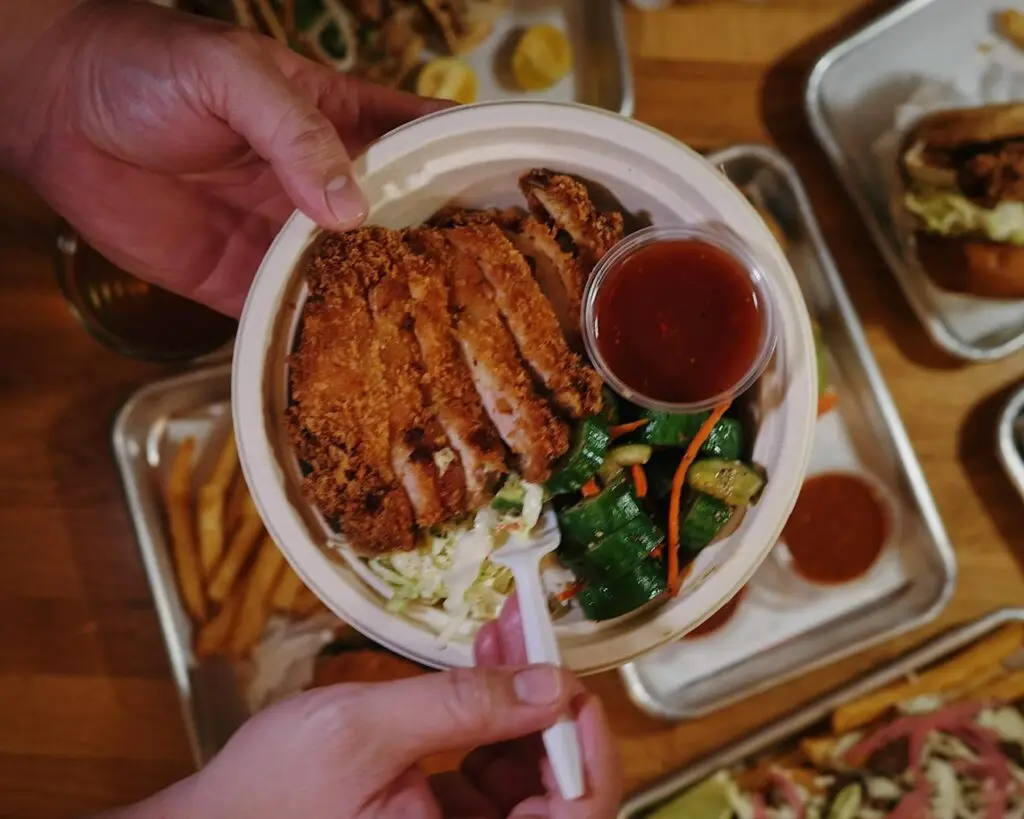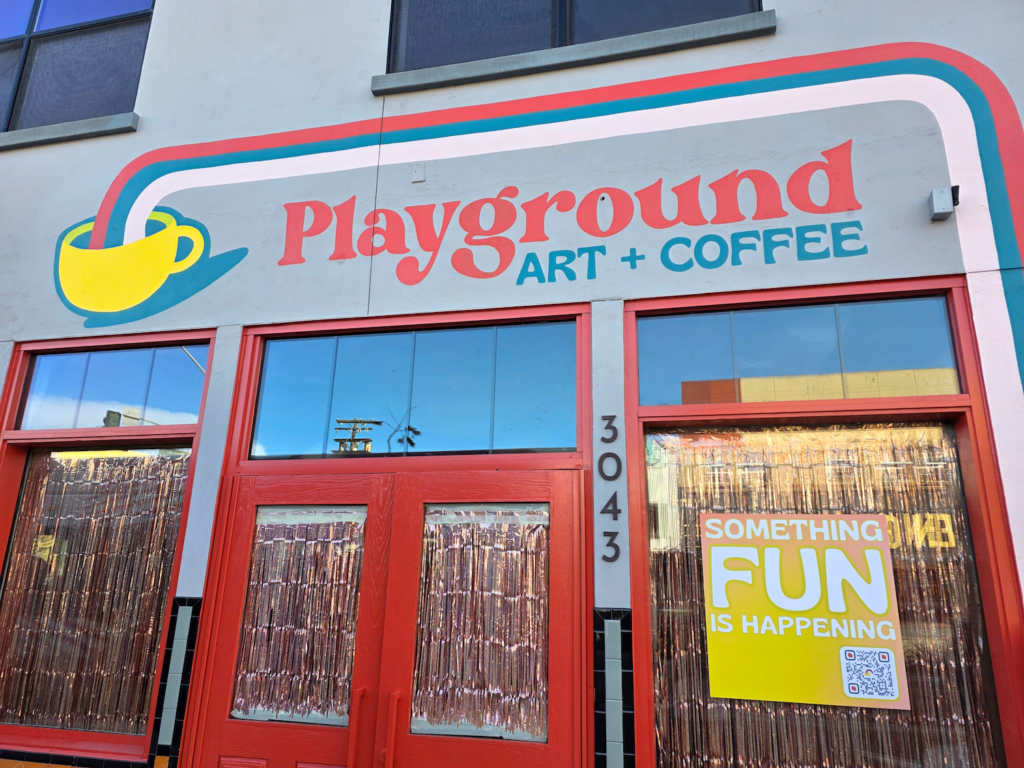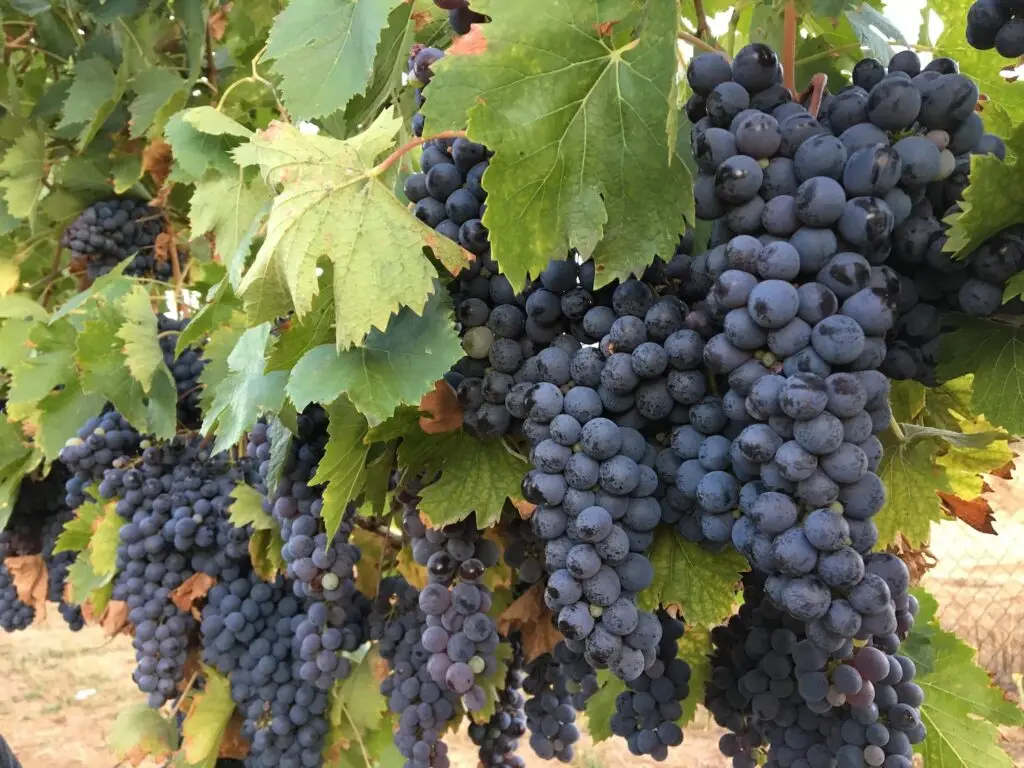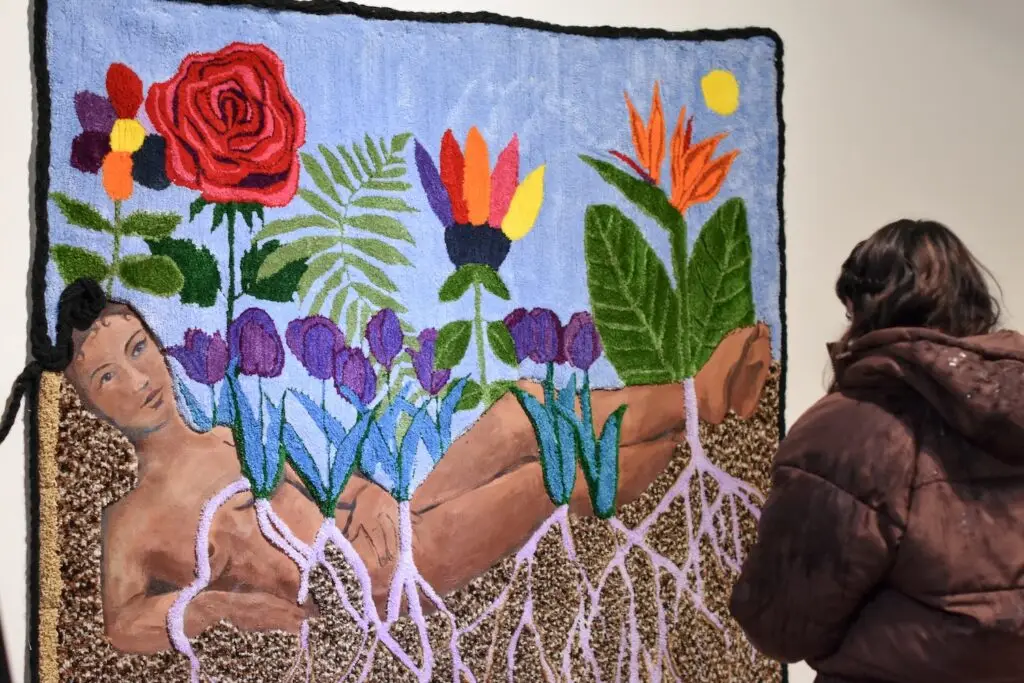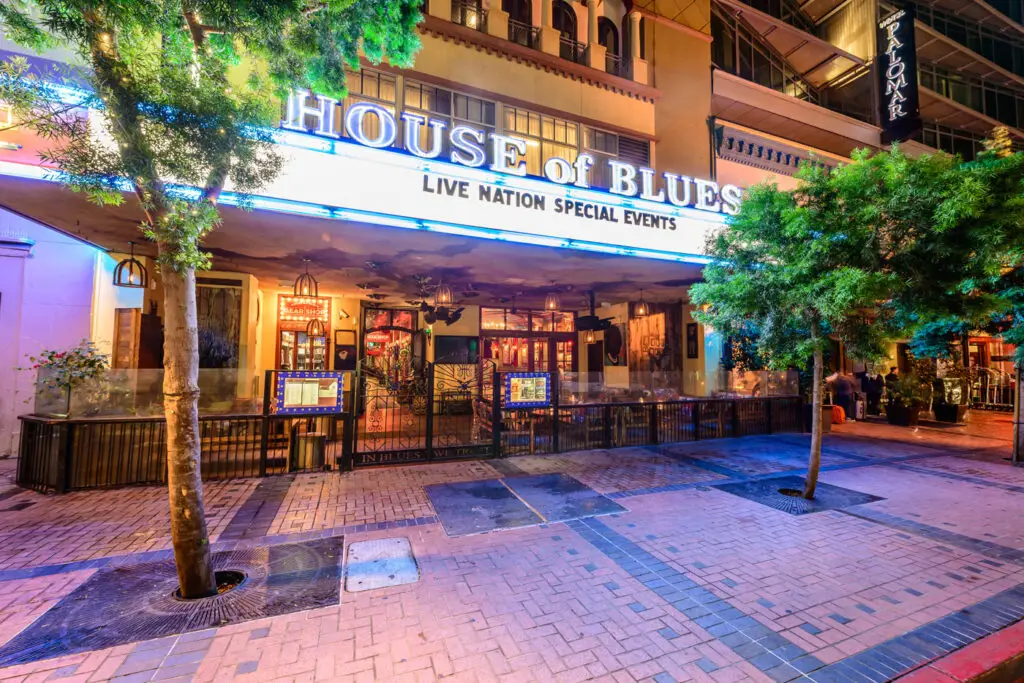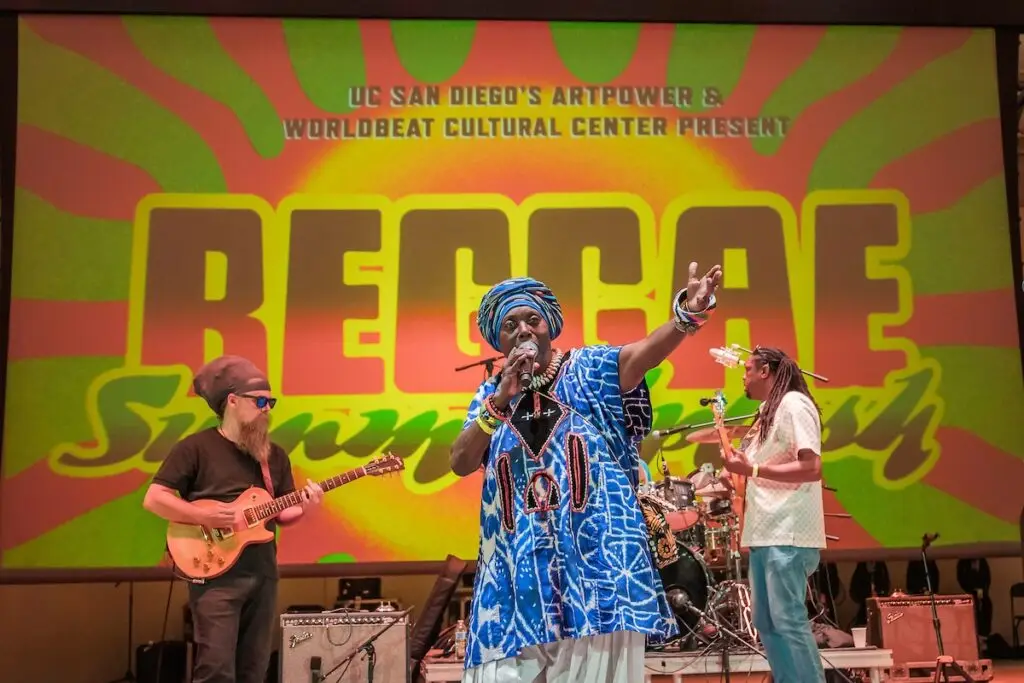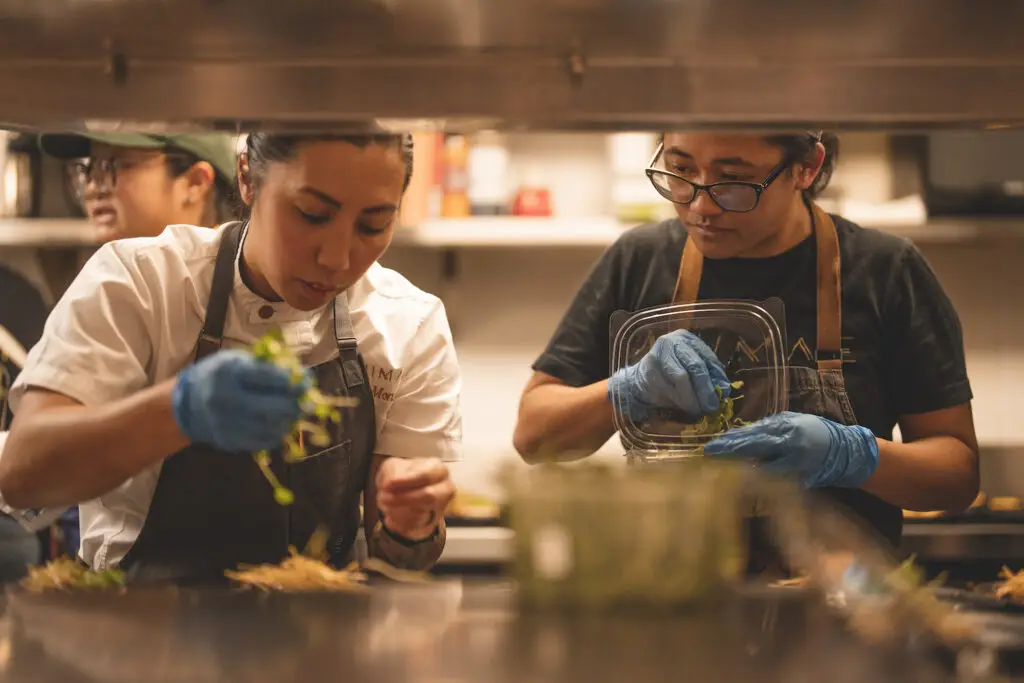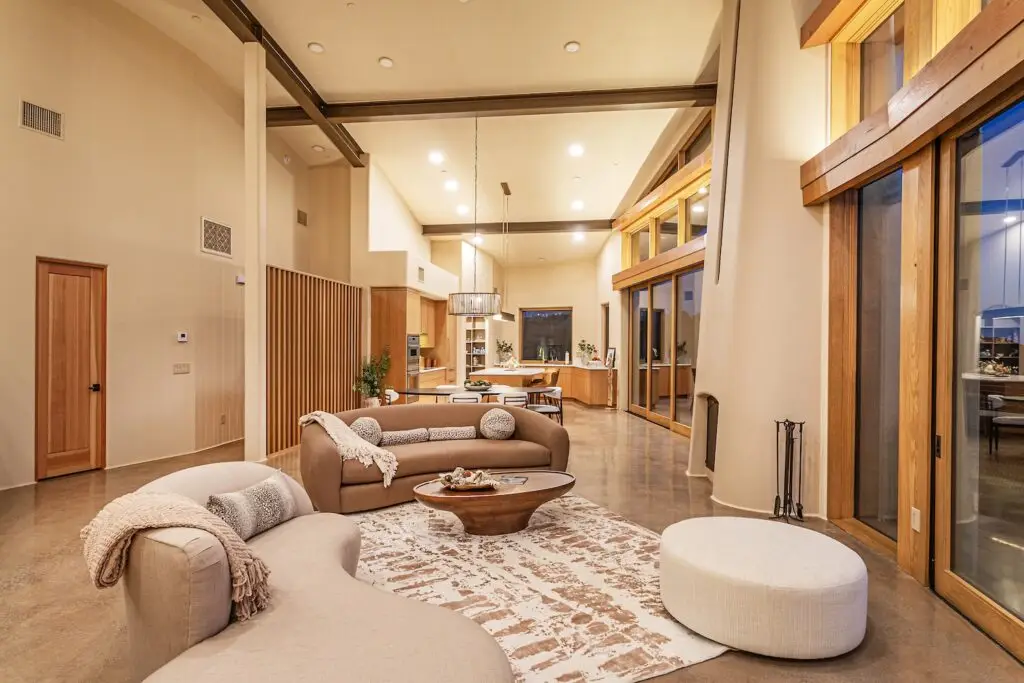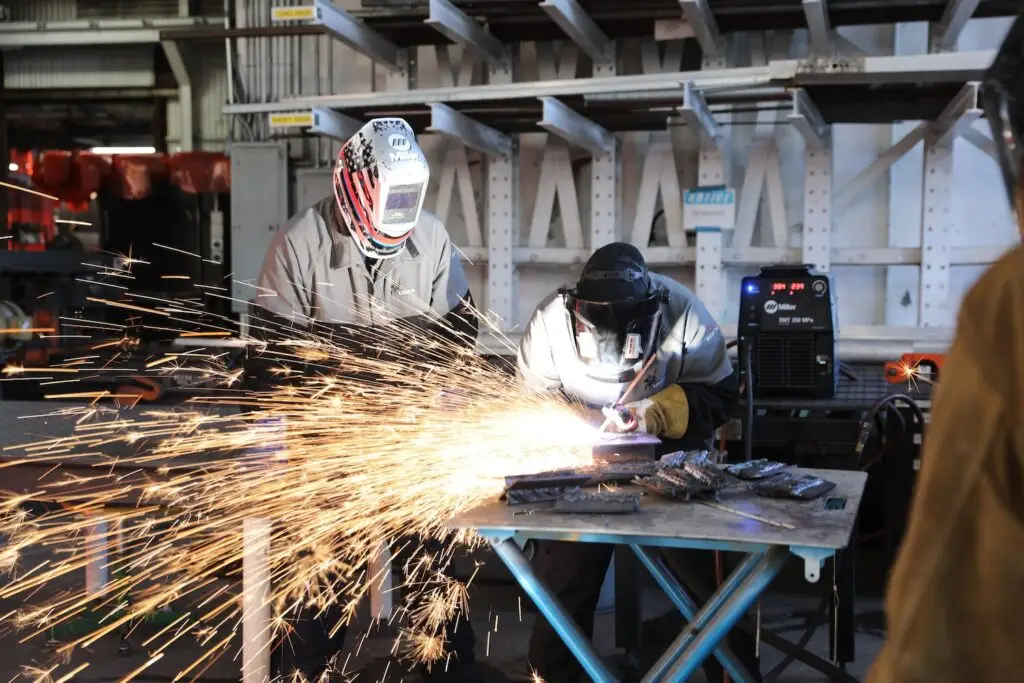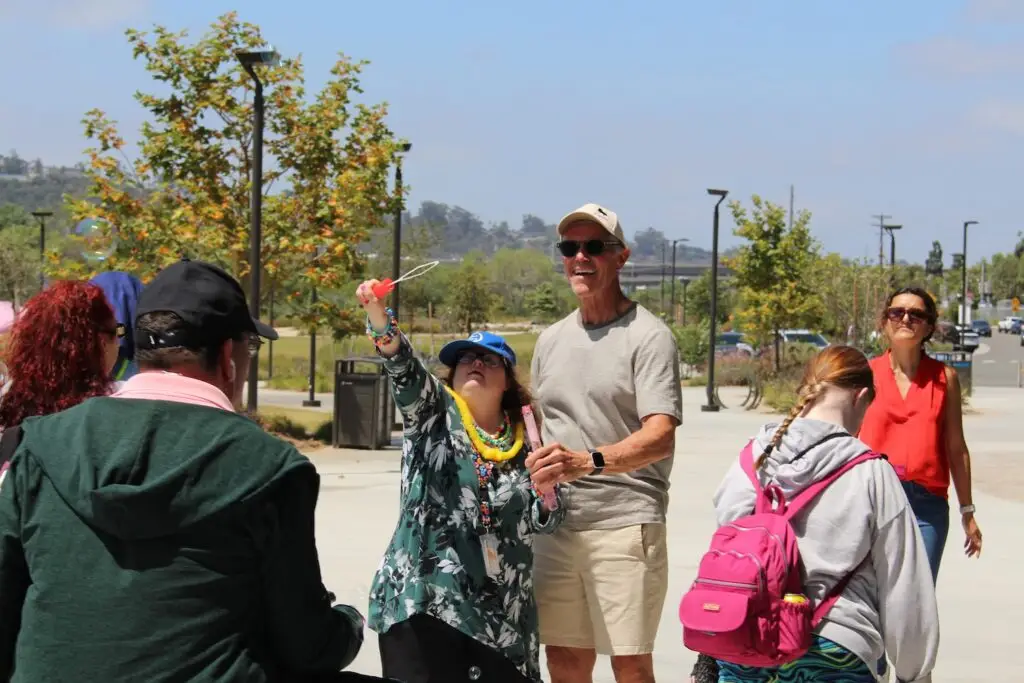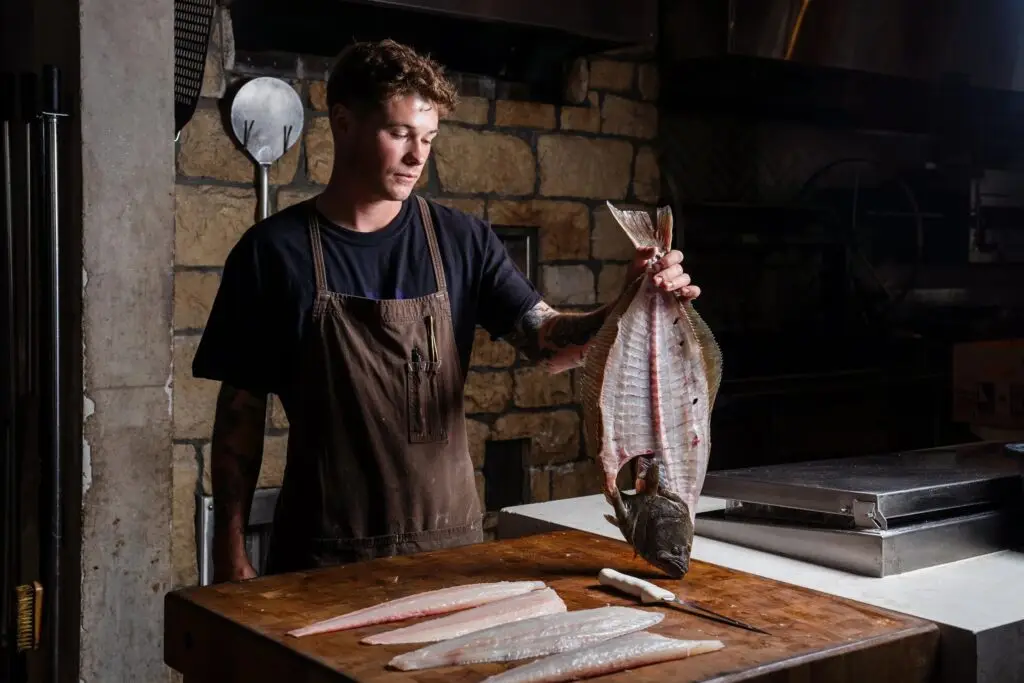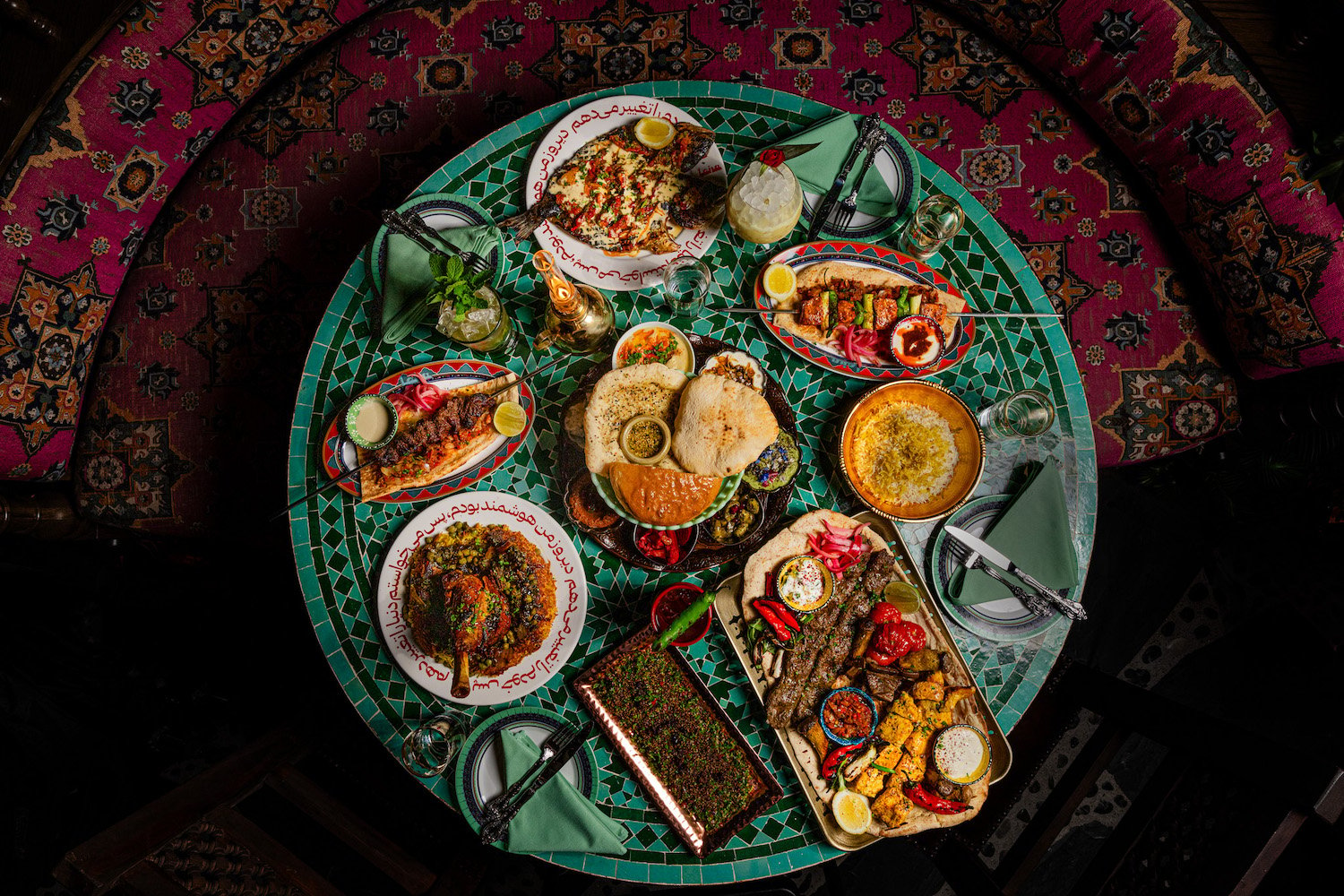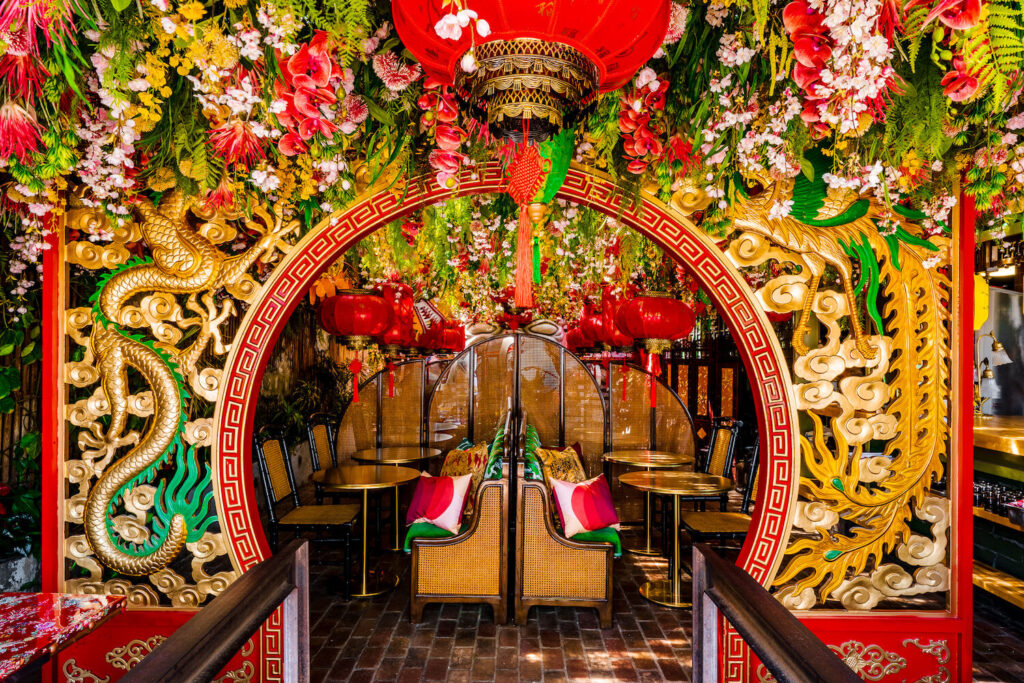This one—the newest elaborate immersion chamber we’ve come to expect from CH Projects—is personal.
“I wanted nothing to do with my own culture as a kid,” says CH Projects founder Arsalun Tafazoli over a plate of kebabs and manakish and a greatest hits parade of Middle Eastern sauces (toum, amba, zhoug, garlicky yogurt elixirs of all kinds) in the movie set that is Leila, his new restaurant in North Park. “It wasn’t cool to be Middle Eastern when I was growing up. Then 9/11 happened. I tried to disappear into SoCal American culture.”
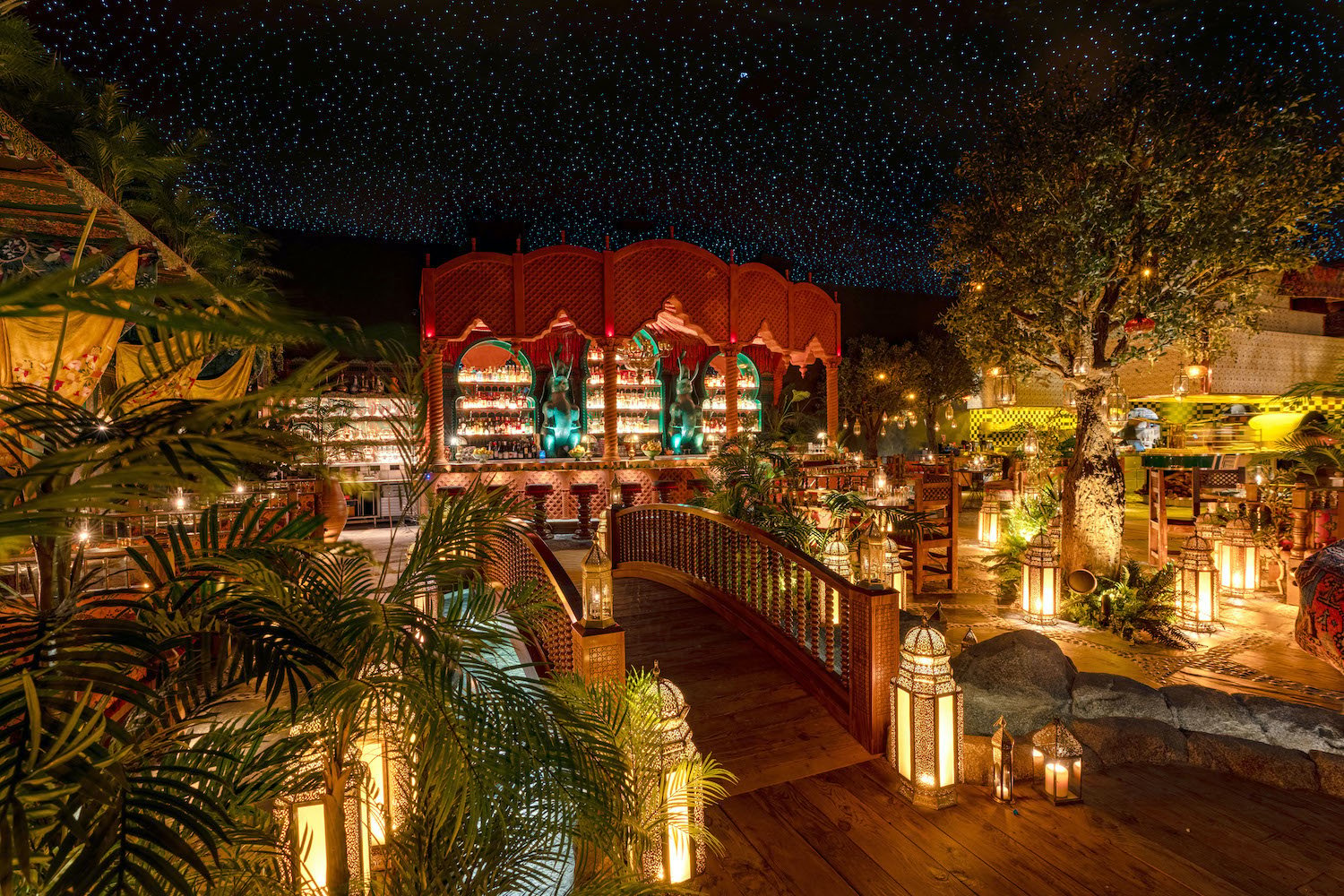
To the left of the bar sit dozens of one-of-a-kind teapots shipped over from the Middle East.
In Leila’s open kitchen, a vertical log fire licks glistening fat off kebabs on massive skewers. Steam rises from a custom-made tabun, stuffed with naan and pita and barbari. The air is starchy and caramelized with rice. The ceiling is blackened, with pinhole lights conjuring stars. Every surface has been decoratively rugged, amber-lit with oil lamps. A life-sized lion head is etched in the synthetic rock staircase leading to the bar on the second level.
“You have all of these ideas to try and create something meaningful, and you never know when you’re going to go too far,” Tafazoli says. “Even as we were installing the ceiling—this massive thing we’ve built because we hope it will make it a more immersive place—I was thinking Is this the thing that will make it look cheesy?”

A Staggering 7,000 reservations were booked within Leila’s first 24 hours
Tafazoli’s parents immigrated to San Diego from Iran when he was young, his mom raising him largely on her own in University Heights. As both survival instinct and escape, he read—books, culture mags, music blogs, art leaflets, everything, obsessively, all the time. He forged documents to get into La Jolla High, the revered “good school” in the affluent nearby neighborhood. That self preservationist nerding manifests in the art-project hospitality concepts of CH: Craft & Commerce, Born & Raised, Polite Provisions, the LaFayette Hotel, and many others, including Leila.
When his mom passed a few years ago, Tafazoli allowed himself his own history. He went back to the Middle East (not Iran, for reasons), loitered in night markets and bazaars, and took notes on culture and how cities and towns and villages built inspiring environs. “Everywhere I went, there was water, whether a stream or a fountain,” he says, pointing to water cascading down a 30-foot rock wall into a lagoon and the creek that runs through the restaurant. “So we made sure you could hear water from every seat in here.”
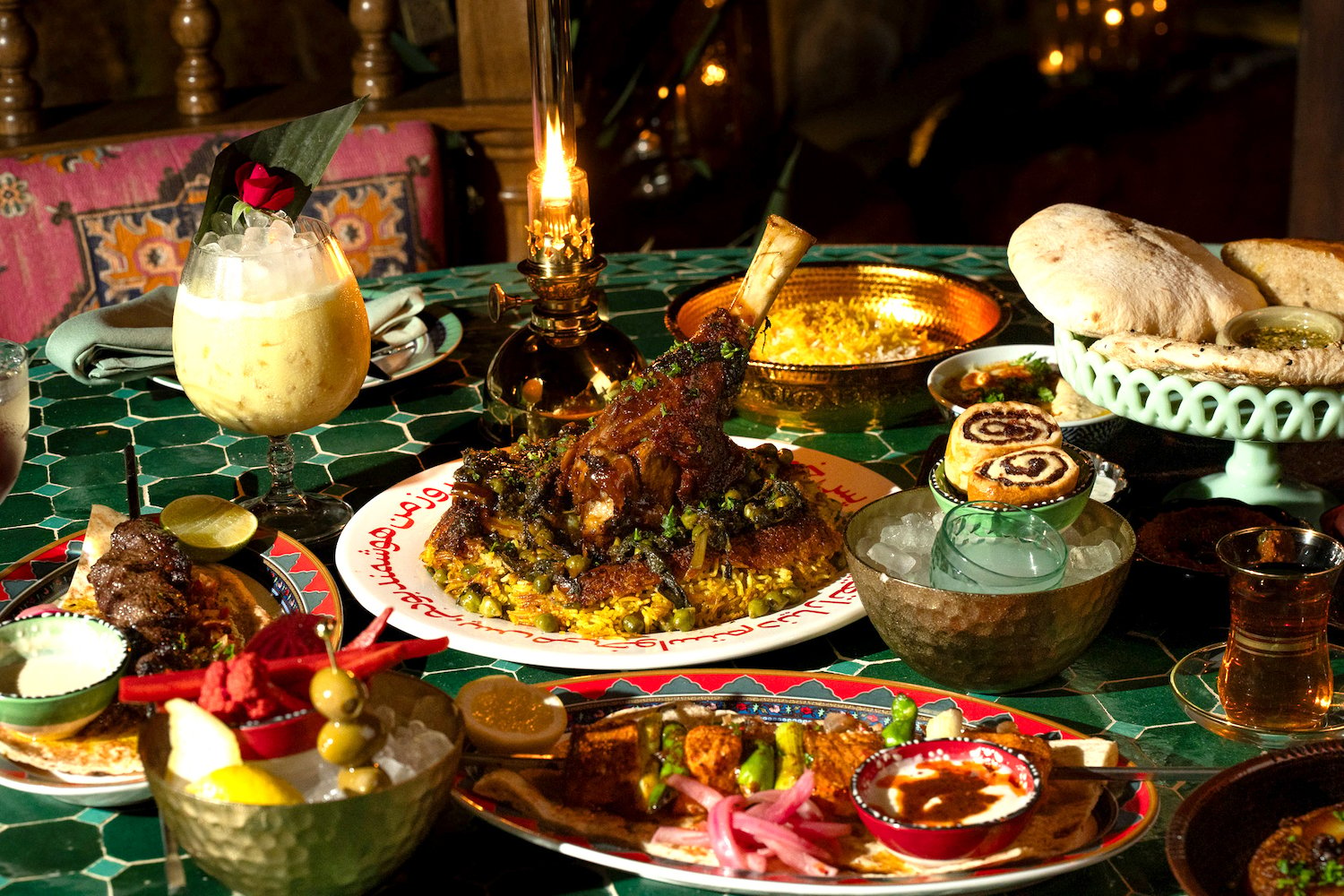
Leila is a house of a thousand breads and sauces.
Tafazoli’s base instinct is selfmockery, so he shares his favorite story. His plan was to find merchants and artists, pay them well, pack everything onto shipping containers, and build Leila out of Middle Eastern handiwork. “So, I’m at a small market, explaining my whole international shipping system to this man,” he recalls. “He looks at me kind of weird and says, ‘Why don’t you just order from our Etsy page?’”
CH brought in exec chef Wesley Remington Johnson, who led Portland restaurants (Tusk, Ava Gene’s) and worked under Michael Solomonov at the James Beard Award–winning Zahav. Even with the pedigree, they often enlist local Middle Eastern cooks, point to a bread or a batch of rice that’s not quite as good as mom’s, and ask for help.
“I’m very clear to say we’re not claiming it to be the most authentic; we’re just inspired by the dishes and doing it our way,” Tafazoli adds. “Because no one is ever going to make tahdig as good as your mom. My mom used to say about Persian food, ‘Only men are allowed to work in restaurants, so restaurants suck.’”
PARTNER CONTENT
They’re trying not to suck… and succeeding. In one corner, there’s a space, all flowy with gorgeous fabric, pictures, and paintings—his mom’s things, which are his things.
